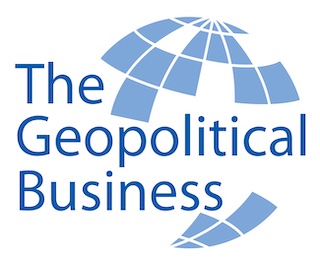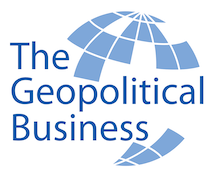The Geopolitical Business has created a plain-English glossary of geopolitical terms for business executives to navigate [geopolitics+business]. Expansion of BRICS (Brazil, Russia, India, China and South Africa) group of nations. A new geopolitical and economic continent bringing together Indo-Pacific, Central Asia, Middle East and parts of Europe, including Russia. An exclusive grouping of nations around shared geopolitical and economic objectives. A group of non-Western nations around the world that are in various stages of economic development. A new geopolitical bloc made up of India, Israel, the United States, and the UAE that is focused on sustainability. A new initiative connecting the US, UK, Australia and New Zealand with the Pacific Islands nations. A geoeconomic bloc made up of Australia, India, Japan and the US. The Shanghai Cooperation Organization (SCO) is a defense and economic bloc of 9 countries (China, India, Kazakhstan, Kyrgyzstan, Russia, Pakistan, Tajikistan, Uzbekistan and Iran). A digital currency issued by a nation’s central bank (Central Bank Digital Currency). A war-like financial conflict that is created when nations devalue their currencies to boost exports and economy. Moving away from the US dollar in global trade and as a reserve currency. The rise of Yuan as the new currency of oil trade. Reduction or loss of business activity in a country or region due to factors like geopolitics, government policy or lack of resources. Creating digital trade routes between China and the world through technology. Threatening or causing economic pain on a nation for it to change policy. The global economy dividing into multiple competing and conflicting zones where business operations (supply chains, factories and movement of goods), foreign investment, innovations, technology, trade, infrastructure and more are no longer shared or integrated. A new paradigm of national security where all key resources that are needed for a smooth, successful and stable functioning of economy and society are available and secured. Availability of affordable staple food on a consistent basis. Convergence of geopolitics with economy where either is used to meet the objectives of the other. A new strategy for nations to secure and store chips, like petroleum reserves, for emergency situations. A nation mobilizing its economic resources (factories, raw materials, capital, workers, etc) to make goods and support its war objectives. A multi-trillion dollar plan from China to connect the world through physical and digital infrastructure around the Chinese axis. Reversal of globalization. New routes (sea, rail, road and air) that nations are building to facilitate trade. A new form of globalization where countries are using technology to erect barriers to trade, capital, people and more. Global trade settled in Yuan, the Chinese currency. A proposed global institution made up of companies, countries and cities to govern AI (artificial intelligence). A new proposed financial institution, like the International Monetary Fund (IMF), funded by Asian economies. A scoring system that determines trustworthiness of companies in China. A new social design in China, driven by algorithms, where individuals are given scores based on their lifestyle and conduct in society. The decisions of governments that define how nations develop and evolve. A form of tax on excess profits that the government declares as obtained unfairly. Also known as Profits Levy or Excess Profits Tax. Minerals (nickel, lithium, germanium and more) that are considered critical to national and economic security. An informal term referring to Argentina, Bolivia and Chile holding more than 75% lithium reserves in the world. A new arrangement outlining the flow and payment of energy among nations. How businesses navigate international affairs and directly work with other nations to protect and enhance self interests of the company. A business playing geopolitics like a nation. Use of false or manipulated information to create a flawed belief in society. A business that has made geopolitics central to its operation and critical for business success. Disruptions to business operations, national security, global trade, economy, society or government caused by geopolitics. A workforce divided into ethnic groups due to geopolitics. A new approach where the entire business and its activities are designed with geopolitics in mind first. A new organizational design for doing business in a world that is becoming fragmented and vertical because of geopolitics. Readiness of an organization for playing geopolitics and protecting their operation. The geopolitical strategy of c-suite to guide their organization through current and future geopolitical disruptions. Unexpected and unfamiliar threats to business operations in markets around the world because of geopolitics. Sacrificing profits for a geopolitical cause. A risk to the reputation of a firm based on its geopolitical actions. People who have been displaced by climate change, such as flooding or droughts, and are forced to move elsewhere. People that have been displaced by lack of food – and are moving (legally and illegally) to nations who have a steady food supply. The South Korean cultural brand seen as powerful as China’s Belt and Road Initiative. A group of nations in Asia offering an alternative to China for establishing supply chains. A new approach where nations and companies are not dependent on China for success. Cutting off dependency on another nation to achieve national and economic security. A limited form of decoupling where dependence on another nation is reduced in a very narrow, calculated, and strategic way. Relocating supply chains to nations that are ideologically aligned and considered friendly. Outsourcing within home country’s national borders. Relocating supply chains back to home country where they were originally located. New conflicts arising among companies, countries, cities and citizens from the fusion of geopolitics and sustainability. Geopolitical and economic confrontations resulting from nations denied access to chips, production tools and software. Spying digitally to gain access to the inner workings of a nation or business. Ability of a nation to control and govern data within their national borders. Convergence of artificial intelligence (AI) and geopolitics whereby countries (and companies) are using AI to amplify their geopolitical power in the world. New global conflicts around the next generation of technologies like quantum computing, robotics, etc. A nation projecting its power by tying technology to national security, economy and identity. The US controlling the world through currency, trade, technology, investments, military, institutions, alliances, corporations and geopolitics. Actions of countries and, increasingly that of companies and cities, to either suppress interests of other nations or protect their self-interests in direct competition or conflict with nations. A part of the world that is highly volatile and unpredictable. The aggressive way nations are behaving with each other in the context of diplomacy, generating new operating uncertainties for business. A global environment where multiple nations are deciding what happens around various issues of common interest. A reference to nations, like Taiwan, that could end up in a war. A new war-like conflict between the US and China that is not a hot or kinetic war. A resurgence of defense spending and procurement by nations especially by those that avoided it in the past. A new global environment describing power structures, trading activities, governance institutions and alliances among nations. Nations looking to nuclear weapons for achieving their geopolitical objectives. Multiple crisis, like food shortage, inflation, effects of war, hot climate and more, simultaneously spreading around the globe. A risk that emerges inside the borders of a nation (like a military coup, failed elections, unstable government, social revolution, etc). A new configuration of the world that has developed because of the Ukraine war. A set of Western rules that every country is supposed to follow in international affairs, economic trade and global alliances. A single country, like the US in the 1990s and 2000s, facing no competition or push back in global affairs. A tactic of a government to turn currency or trade or institution or something else into a weapon to have its way against another country or anybody the government considers an adversary. A term associated with China’s diplomats that are openly hostile towards anybody (nation or person or institution) that is criticizing China, its policies or the ruling party. The thought process of Xi Jinping, the President of China, on the defense and security of China. A German expression meaning a watershed moment or turning point in history. It came into focus after Germany announced increasing its military budget and buildup after the Ukraine war began. Geopolitical Glossary For Executives
Pick A Category or Scroll Down
Alliances
BRICS+
Eurasia
Geoeconomic Bloc
Global South
I2U2
Partners in the Blue Pacific
QUAD
SCO
Currency
CBDC
Currency War
De-Dollarization
Petro Yuan
Economy
Deindustrialization
Digital Silk Road
Economic Coercion
Economic Fragmentation
Economic Security
Food Security
Geoeconomics
Strategic Chip Reserves*
War Economy
Globalization
Belt and Road Initiative (BRI)
Deglobalization
New Transport Corridors
Vertical Globalization
Yuan Trade
Governance
AI20*
Asian Monetary Fund
Corporate Social Credit
Social Credit System
Statecraft
Windfall Tax
Resources
Critical Minerals
Lithium Triangle
New Energy Order
Strategy
Corporate Diplomacy
Corporate Geopolitics
Disinformation
Geopolitical Business*
Geopolitical Disruption
Geo-Ethnic Workforce
Geopolitics First
Geopolitically Integrated Enterprise(*)
Geopolitical Readiness
Geo Playbook
New Market Risks
Politics Before Profit
Reputational Risk
Society
Climate Migrants
Food Migrants
K-Pop Power
Supply Chain
AltAsia
China Free
Decoupling
Derisking
Friendshoring
Onshoring
Reshoring
Sustainability
Green War(*)
Technology
Chip War
Cyber Espionage
Data Sovereignty
Geopolitics and AI
Next Tech Wars
Techno Nationalism
World Affairs
American Hegemony
Geopolitics
Hot Zone
Hostile Diplomacy
Multipolar
Next Ukraine
New Cold War
New Militarization
New World Order
Nuclear Chess
Polycrisis
Political Risk
Post War Future
Rules-based International Order
Unipolar World
Weaponization
Wolf Warrior Diplomacy
Xi Doctrine
Zeitenwende
Protect Your Business
Words with an asterix(*) were coined by The Geopolitical Business.
Geopolitics is affecting business in many more ways than supply chains or tech wars. Do not wait till the next disruption hits you.

